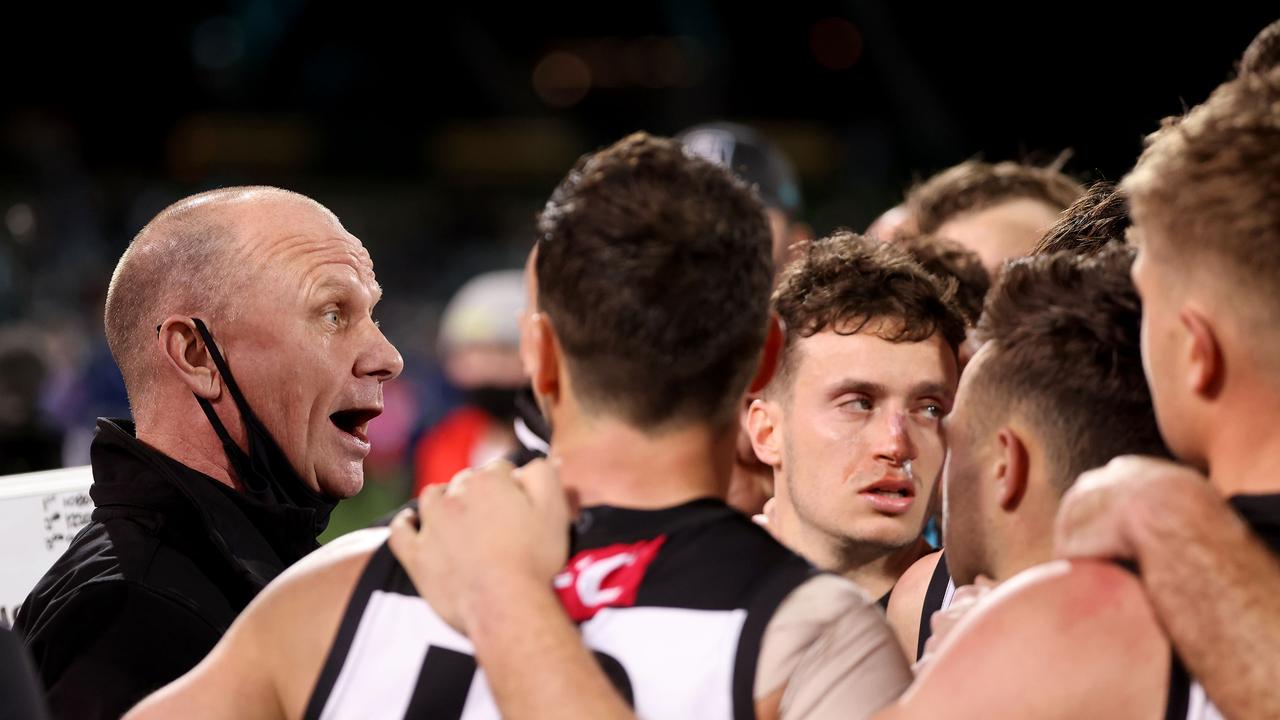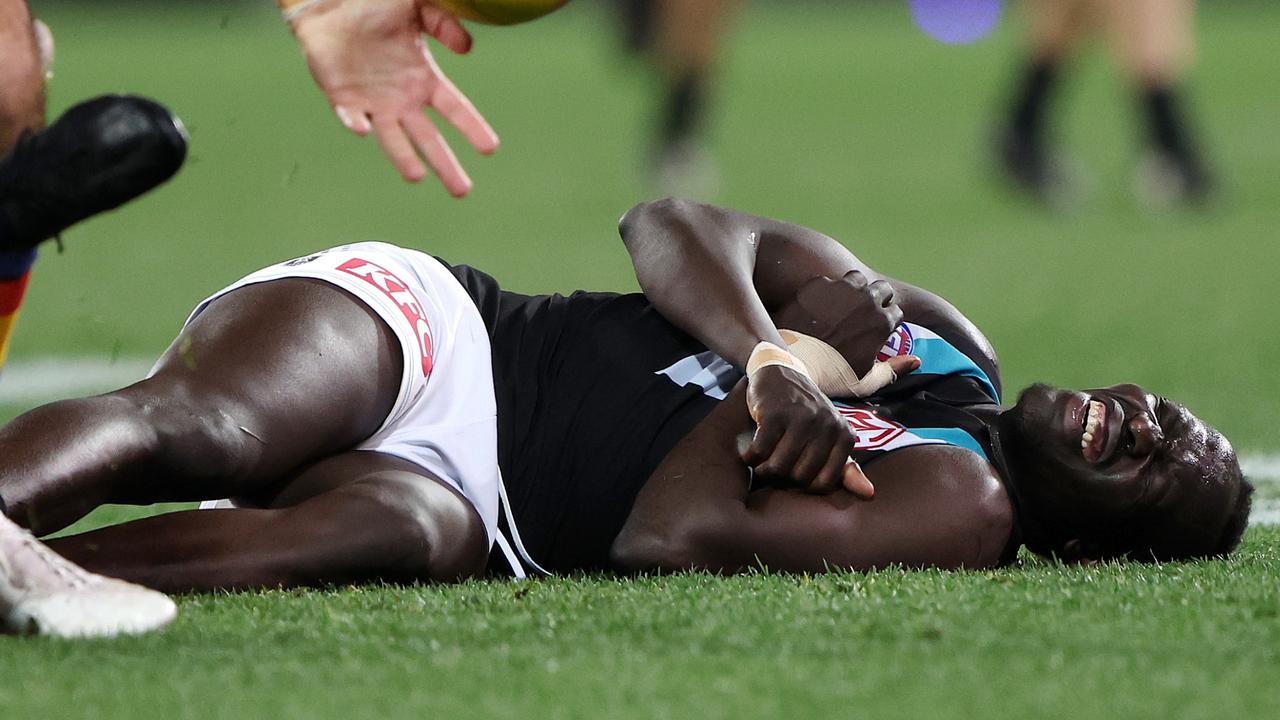Port Adelaide hit with AFL’s largest ever concussion-related fine after Aliir Aliir head knock
Port Adelaide has accepted a $100,000 fine for breaching the AFL’s rules following the club’s failure to send defender Aliir Aliir for a concussion test in Saturday’s match against Adelaide.
The fine is the largest ever concussion-related sanction in the sport, which is dealing with litigation by former players over the historical management of players’ brain health.
The Port Adelaide general manager, Chris Davies, said his staff had “the highest integrity” but “people make mistakes”.
“This is a high stakes game where we would clearly prefer the mistakes don’t happen, but they do and you can only deal with the circumstances from there,” he said.
Half the fine, $50,000, will be included in the club’s “soft cap”, that is designed to equalise football department spending around the league. The other half sits outside the soft cap unless a similar breach occurs before the end of the AFL or AFLW season next year.
On Saturday, Aliir and teammate Lachie Jones were involved in a head clash in the second quarter. Both underwent an initial head injury assessment (HIA). Jones left the field for a full concussion test, and ultimately left the match with a migraine.
Aliir underwent an initial HIA but returned to play on. At the time, the Crows held a narrow lead, and went on to upset Port – who are second on the ladder – by 47 points.
AFL general counsel Stephen Meade said the league’s concussion protocols “require strict and consistent adherence to protect the health and safety of our players”.
“In this instance Port Adelaide admitted that Aliir should have undergone SCAT5 [concussion] testing at the time immediately following the collision on Saturday night,” he said.
“By not undertaking the test, and Aliir returning to the game without being subject to that further detailed assessment, Allir’s wellbeing was potentially at increased risk. The health and safety of all players is paramount, and this will continue to be the focus for our clubs and for the AFL.”
The AFL requires players who suffer a suspected concussion or show concussive symptoms during a match to be sent for a formal medical test. This off-field test – known as SCAT5 – takes 15 minutes and involves a club doctor identifying red flags such as loss of consciousness and vomiting, checking for signs of concussion like disorientation, and performing cognitive and concentration tests.
On Saturday, Jones went through the procedure but Aliir was allowed to return to play without testing. Both have subsequently showed signs of concussion and have been omitted from the side for Port’s visit to Geelong on Saturday.
Davies said the club’s doctor accepts the process wasn’t followed.
“If he had his time again, he would do one part of that process differently,” he said. “That doesn’t mean that his clinical diagnosis would have been different, but he acknowledges that the process in its entirety wasn’t followed.”
The AFL Players Association chief executive, Paul Marsh, said concussion is one of the biggest threats to the game.
“It is vital we, as an industry, are conservative when dealing with these injuries,” he said.
“The club doctor made a serious mistake but importantly both he and the club have taken responsibility for the mistake.”
Davies accepted his club must do better.
“We all know that brain health is an important issue that we all need to take seriously,” he said.
Jones and Aliir must now complete an 11-step, minimum 12-day process before returning to play.
The AFL is facing a series of lawsuits from former players over the handling of concussion.
Meade said: “Our work never stops in protecting the health and safety of everyone playing Australian football, and as the science and professional medical advice evolves so will the protocols.”


